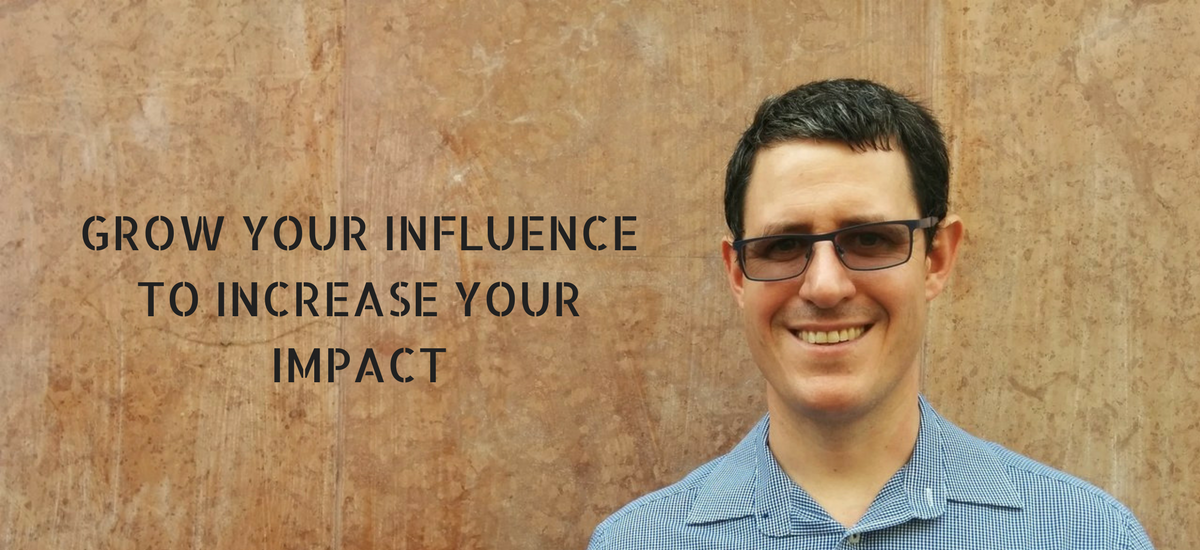
In essence, this post is about why great content matters, now more than ever- and why just producing it isn’t enough, you have to make it work hard for you.
I have my share of comms experience, in both a paid and voluntary capacity. Much more importantly though, I realised early in my career that I needed to share the things I produced with others in order to make a difference and be heard. I know that isn’t easy when you are working for a small organisation, or when you are setting out as a consultant or promoting something without much external support, but there are things that can help. Trust me, it will be worth you investing the time. I care deeply about getting messages out into the world on topics that I care about. I’m sure you do too and I want to show you how we can all help each other. I will briefly discuss why content matters, why you should share it and why you need to make the content that you produce work harder for you. I’ll then finish with a few tips that I hope will be helpful to you.
Why content matters
So, why does content matter? Firstly it matters because if you want to get your ideas out into the world, you have to think carefully about all the different ways that you could do this. Unless you wish to speak to everyone individually, face to face, then you will need to find a way to express your messages in a shareable form. Online this might be via social media, a blog, a website, a video, a podcast and so on. When people think of producers of content, they often think of organisations rather than individuals. X company has a new report to share; Y has a press release about the activities of its’ Chief Executive etc. But of course you can create content just on an individual basis too. Over time if you do this consistently in the areas that you want to be known for, you can build up your brand, job prospects and influence. Here, one example of the 80/20 rule comes into play (I will talk about another example later) – namely that when you act online only 20% should be about promotion and 80% should be about giving useful, shareable content to your audience.
But why would you want people to see the content you produce anyway?
Here are my five reasons:
- You matter and your message matters (you are a unique individual, there is no-one like you in the world who has experienced the world exactly the way you have or who has exactly the same skills, hopes, dreams or fears as you)
- It is about giving as well as receiving (all the time, content is being thrust in front of your face. Including content from advertisers you don’t care about, or news stories you find mindless. Isn’t it time that you stopped being passive and put some of your own ideas out there, to compete?)
- The marketplace is so noisy and you have to break through (if you want to be successful at what you do, you have to realise that millions of people and organisations are trying to grab people’s attention and take it away from promoting the messages you are interested in)
- Your cause deserves it (if you are supporting a charity, a social enterprise or other organisation that is trying to bring some good into the world, you aren’t really creating content for yourself. You are creating it to honour the cause and those the cause serves)
- You can’t afford not to (Unless the internet, the written word, the spoken word and all other forms of communication are banned tomorrow, this isn’t an area which is going to go away. The better you get at creating and sharing content now, the more of a difference you will be able to make to your own life and the lives of others in the future) Of course, no-one is going to become a content machine overnight. Not only may you rely on specialists to help you in different areas of content creation and dissemination, but you can get better and better over time.
The beautiful part of writing is that you don’t have to get it right the first time, unlike, say, a brain surgeon. – Robert Cormier
Also, over time you can build up your networks so that when you have something really special to share, there will be others who will help you share it. Just as you will have been helping them on their own journey. The way I see it there are three main mistakes that people make when it comes to content. The first is that the content they produce isn’t good enough, the second is that they aren’t collaborative enough and the third and most important mistake in my view is that they don’t share it enough.
What good content means
Samuel Johnson said “What is written without effort is in general read without pleasure.”
For me good content means two simple things. First, it is content that the people you are trying to communicate with or influence are interested in. In this context you may produce a scientific study for one audience and an emotional plea for support to another, and both are good content if they advance your aims. Related to this point, whether you are an individual or an organisation, it helps to have a simple comms plan. This might contain ideas like ‘I/We want to build our reputation as an expert in X’ or ‘I/We would like our article to be downloaded Y times by the end of the month’ or ‘As a result of our content being seen by our target audience Z will happen’.
Second, good content is content that is of uniformly high quality. Well presented, no typos, facts all checked and easy to read. With the tools now available at our disposal online, even someone with no budget and a few skills should have the opportunity to achieve this. Of course, if you know that you tend to make a lot of typos you can enlist the help of a colleague or friend with eagle eyes to help you out and the same goes for any other area you might need some support with. No-one expects you to be good at everything, just to value good work.
Be so good they can’t ignore you.- Steve Martin
Being collaborative
I’m not going to dwell on this too much because it is beyond the scope of this post, but I hope it goes without saying to most people that collaborating both on the creation and dissemination of content helps it go further. I despair when I see duplicate content created by two organisations who should have talked to each other. I also despair when I see organisations (and, less frequently, individuals) who only promote the things they are working on and never help others.
What you can do to make your content work harder
In the main the problem I see with a lot of people’s efforts around content is not about content creation, it’s in the limited way they share it. Countless times I have seen a piece of content produced by an individual or an organisation that has taken my breath away. Then, when I later see how little they have shared it, my breath is taken away a second time. For example, I see videos posted online which must have required a substantial budget, specialist skills and a great deal of time to produce. One week later some of those videos have so few views that the person who put it up can’t even have convinced their own family to watch it! For me this makes no sense. It would be like being a painter who spends months slaving over the creation of a painting and then throws it in a sack. Instead, consider this radical idea: that you should spend 20% of the time creating something and then 80% of the time sharing it with people. Please note that doesn’t mean that you spend no time on creation. You should spend enough time to make it good and you should always aspire at least to give the world your very best work.
Another powerful reason for committing to spending much more time on sharing your message than creating it is that we often give ourselves excuses to never share the work we produce. We work on something and they say to ourselves (or to others) that we need to work on it more before we share it with the world. Then, life takes over and we either never spend more time on it or are never satisfied with it- and it doesn’t end up seeing the light of day. The people who are winning the content wars are the ones who constantly think about shipping the things they are working on: getting out of the door into the busy, noisy world.
To give a practical example, imagine you are writing a blog. Once your blog is set up, should you spend months crafting your first post? No! You will get better at blogging by doing- by responding to your readers, practicing your craft and testing what works. If you don’t do this, you might write a brilliant post that you have spent years on and then discover that you don’t have any sort of audience to read it. All the people I see online who are best at using content don’t worry about being perfect the first time they create something. Their first podcast, video or blog may not be the slickest. But they have a sincere desire to get better and in showing some vulnerability to their audience, they bring people along with them on their adventure. Case in point, when I started blogging my posts were basic and not very insightful. But if I hadn’t had the courage to share them, I wouldn’t have had an audience. Now my posts are better and my audience has come along for the ride and grown over time.
Of course, if you have a piece of content you are really proud of, excited about and spent a lot of money on, you should take more time. But these factors provide even more of a reason for you to get your content to work hard for you when you do put it out there. In the modern world, every person with access to the internet has an amazing opportunity to reach out to others at incredibly low cost. It’s mindblowing to think that you have a potential audience for your work and the means to get it out to them that is wider and greater than almost anyone, whatever their status, throughout human history. The barriers to content creation and dissemination are lower than ever. Whoever you are and whatever you do, you need to make your content work harder to enhance your message.
Plus, if we can get content out there to our audience, we have no idea who their audience might be. Just think of the seven degrees of separation rule. If you share something, someone else shares it and a third shares that, there are likely to be so many people in that third person’s network who would never have heard of you or your work before.
Is there anything you can do to increase the likelihood your content will be shared? Beyond the already-mentioned points about creating good quality content and supporting the efforts of others? One thing that can certainly help is doing some work on your personal branding. It’s a topic that fascinates me and which I’ve written about and spoken publically about before. The likelihood people will share your work is enhanced if you come across as generally credible, likeable and knowledgeable. If you successfully position yourself as an expert on a topic, when people see your work they are more likely to share it than if someone who isn’t seen as an expert in your area tries to share it. Building a personal brand takes time and building up your potential audience for your content takes time too. But, if you want the content you create to be shared, time is exactly what you need to put into these areas. Another reason it is important that your content gets seen is that for most of us at least, we enjoy the feedback that comes from the positive comments of others. If I spend days writing a blog and the only people who see it are a friend of mine and his dog then I am not going to feel as encouraged to produce my best work next time. Not only that, it might make me opt out of the content wars altogether and that would be a critical mistake.
Two other points. Firstly, while there is a line between pushing your content out and sharing it too much, it isn’t always easy to identify it and you shouldn’t worry about it too much (as long as you are being collaborative and not only sharing the things you are doing, that is). With the fast-paced world of social media in particular and with different time zones meaning people are likely to be online at different times, on each occasion you push out your content there is likely to be someone who hasn’t seen it, who would love to benefit from what you have to share.
Also, when working on creating an audience for your work, think about the quality as well as the quantity of your followers. One Twitter follower who is passionate about your area of work is worth more than a thousand fake accounts following you. What is more, if people stay with you over time they actually eagerly await the next thing that you share and need very little encouragement to pass it on to all of their networks on your behalf.
Some tips
Finally, to wrap up, here are 10 tips that will help your content go further:
- Remember that the knowledge I’ve shared in this paper can be applied to individuals or organisations, your personal or professional life. Many people think that outside their specified job role they have nothing of value to share with the world and that simply isn’t true.
- Share the content of others if you want them to share yours
- Make your content as easy to share as possible
- Use as many social media platforms as you are comfortable with but tailor the message for each audience
- It’s a psychological fact that humans like to follow each other and that (generally) we presume that if a lot of people seem interested in something we will also find it interesting. So you need to try to reach a critical mass of views of your content. Note this is not the same as going ‘viral’ it can happen over time.
- You want to create an overall impression of the value and credibility of your work. If you have 5 videos and one has 1000 views and the rest between them have 100 that looks like you got lucky once. It would be better to have 200 for each
- Learn how to ‘repurpose’ your content. If you can re-use content you have produced by adapting it for a different platform and a different audience, you will save yourself a lot of time.
- Be proud of your achievements, but not boastful. If you share your achievements, people will want to hear and be pleased for you. If you never pipe down about the great things you have done, people will turn off.
- Allow people to engage with your content and with you.
- Collaborate wherever you can. ‘A rising tide carries all boats’.
To avoid criticism, do nothing, say nothing, be nothing- Elbert Hubbard



Please note: I reserve the right to delete comments that are offensive or off-topic.